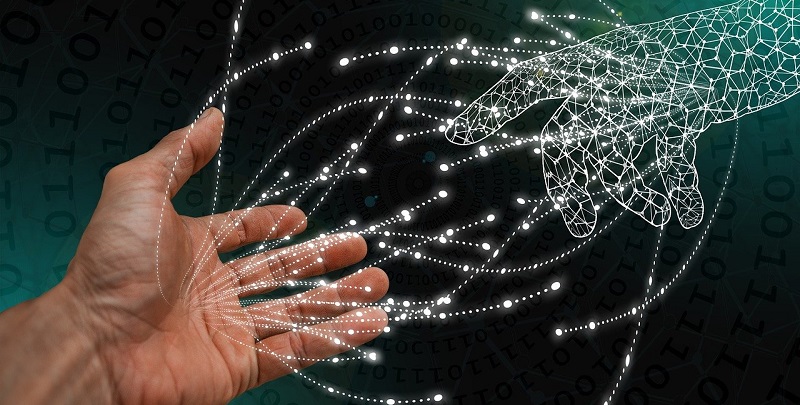Artificial intelligence (AI) software is rapidly transforming the way we work, and its impact is being felt across all sectors. From automating mundane tasks to improving accuracy and efficiency, AI has the potential to revolutionize the workforce in ways that we could never have imagined. However, with this transformation comes fear and uncertainty about the future of human employment. As companies continue to implement AI software, many employees are worried that they will lose their jobs to machines.
The Fear of Job Losses Due to the Rise of AI Software
Many employees fear that the rise of AI software will lead to the loss of their jobs, prompting some to adopt an anti-AI stance. This is particularly true for those whose jobs are most at risk of automation, such as factory workers, drivers, and clerical staff. The fear of losing one’s job is not unfounded, as AI technology is rapidly advancing and becoming more capable of performing tasks that were once the sole responsibility of humans.
The majority of employees oppose restricting AI use
Despite these fears, the overwhelming majority (80%) do not want measures to restrict the use of AI software, according to a Glassdoor survey. Although there are some differences of opinion depending on the age and professional sector of those questioned, most workers see the potential benefits of AI and believe it can improve their working lives. However, some believe that greater regulation is needed to ensure AI is used to benefit society as a whole.
Industry-specific attitudes toward AI
The Glassdoor survey also reveals that some industries are more hostile to AI than others. Employees working in advertising and marketing (87%) strongly oppose a ban or restriction of ChatGPT and other AI programs in business, as do professionals in consulting (84%) and healthcare (83%). These industries are more likely to see AI as an opportunity rather than a threat, and they recognize its potential to help them work more efficiently and effectively.
The Transformation of the Legal Sector through “Big Data” Technologies
The legal sector is also undergoing a radical transformation thanks to the advent of “big data” technologies. These technologies are allowing legal professionals to analyze vast quantities of data quickly and accurately, improving their ability to make informed decisions. From document review to legal research, AI is already making a significant impact on the legal profession. Automating these tasks does not make legal professionals obsolete. AI can help legal professionals do their jobs better by freeing them up to focus on more strategic tasks. For example, lawyers can spend more time counselling clients or developing litigation strategies, while AI handles more routine tasks like contract analysis. This can make legal professionals more efficient and productive, allowing them to deliver better outcomes for their clients.
AI Automation does not replace the value of human employees
The automation of professional tasks does not replace the added value of human employees; it merely shifts it to other, more complex activities in which machines do not excel. AI cannot replace the creativity, empathy, and judgment that are essential to many jobs. Instead, it can help employees tackle more complex problems or focus on tasks that require a human touch. The ultimate goal of AI should be to augment human abilities, not replace them.
McKinsey’s Forecast for AI and Automation
The consulting firm McKinsey estimates that between 2030 and 2060, artificial intelligence will make it possible to automate half of the tasks currently performed by workers. While this might sound alarming, the same report suggests that AI will create new jobs and opportunities in fields that we cannot yet envision. As AI continues to evolve, so too will the types of jobs that are available, creating new roles and industries that we cannot yet imagine.
AI Anxiety and Its Impact on Workers
Despite these optimistic forecasts, the introduction of AI software in our working lives is generating new feelings of anxiety for some people, called “AI-anxiety.” This anxiety stems from the uncertainty surrounding the future of work and the fear of being replaced by machines. However, organizations can take steps to mitigate these concerns, such as offering training and reskilling programs that enable employees to adapt to the changing workforce.
Addressing Employee Malaise in an Ever-Changing World of Work
All of this contributes to employee malaise in an ever-changing world of work. While many workers welcome the positive changes that AI can bring, they also feel uncertain about what the future holds. It is up to organizations to address these concerns by providing support and assistance to employees as they navigate the changing world of work. By offering training programs, reskilling opportunities, and support for workers who may be impacted by AI, organizations can help to alleviate employee malaise and ensure that their workforce remains productive and engaged.
AI software is transforming the way we work, and its impact will continue to be felt in every sector. While some workers fear the loss of their jobs to machines, the overwhelming majority see the potential benefits of AI and believe that it can improve their working lives. As AI continues to evolve, so too will the types of jobs that are available, creating new roles and industries that we cannot yet imagine. By embracing this change and supporting workers as they navigate the new landscape of work, we can ensure that AI is used to benefit society as a whole.

